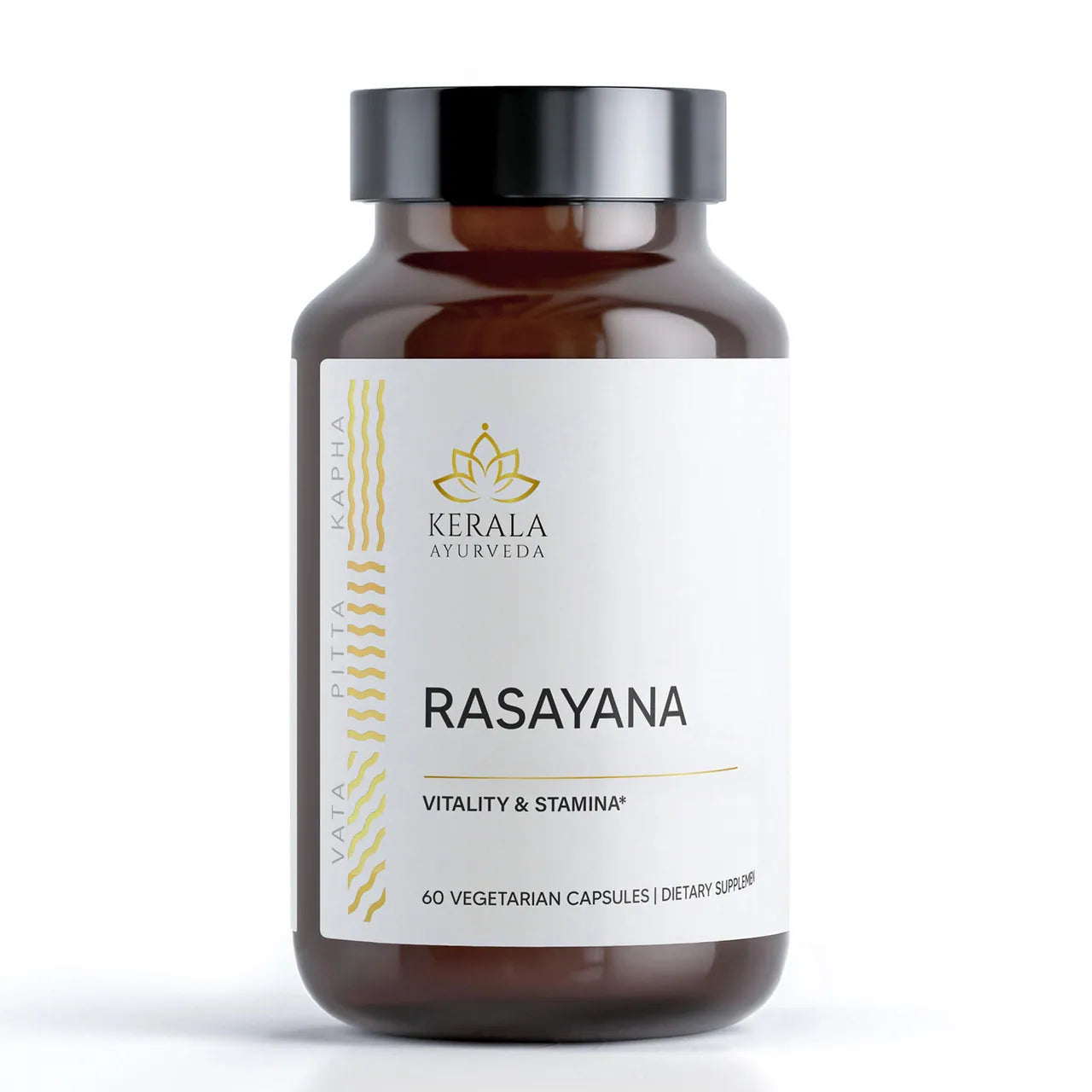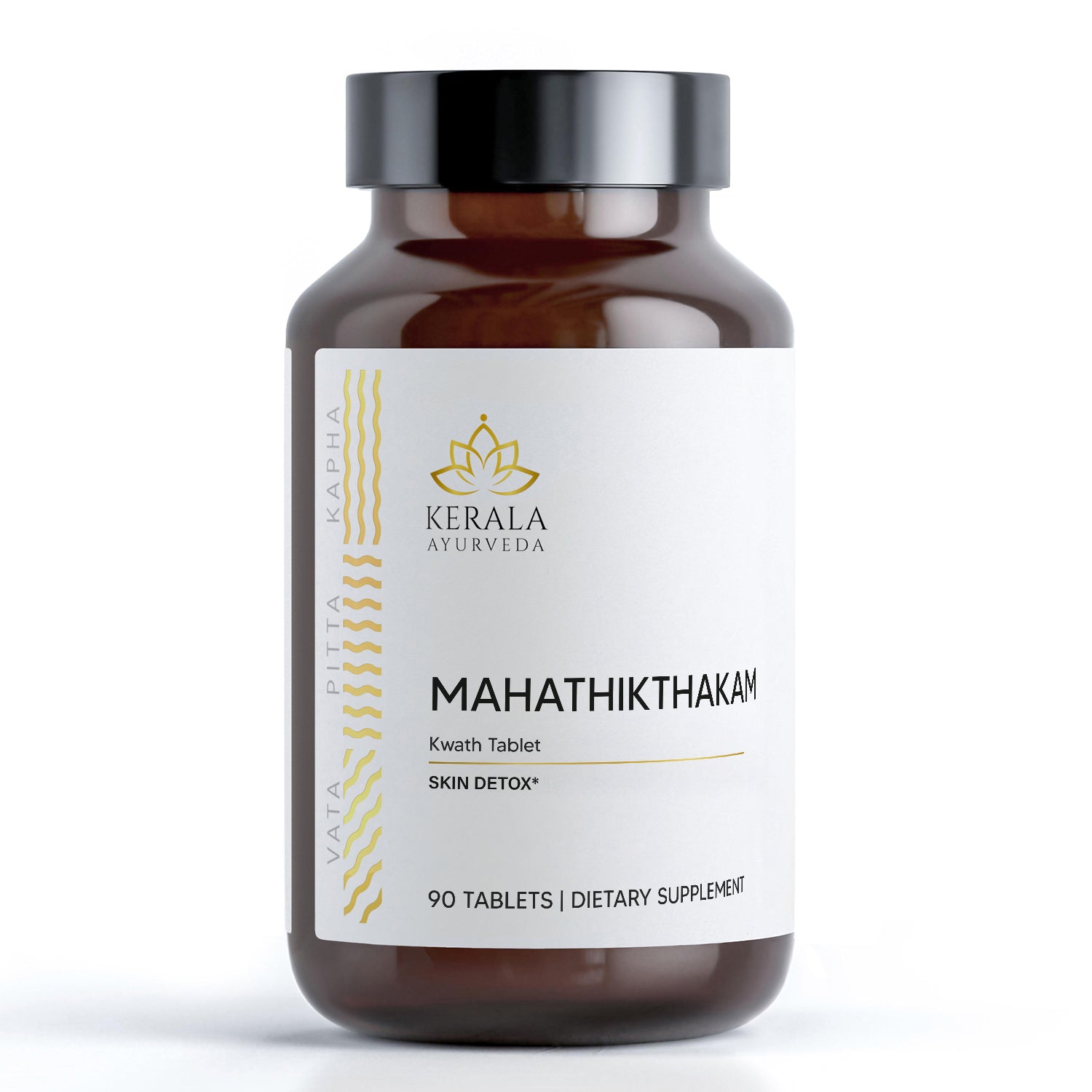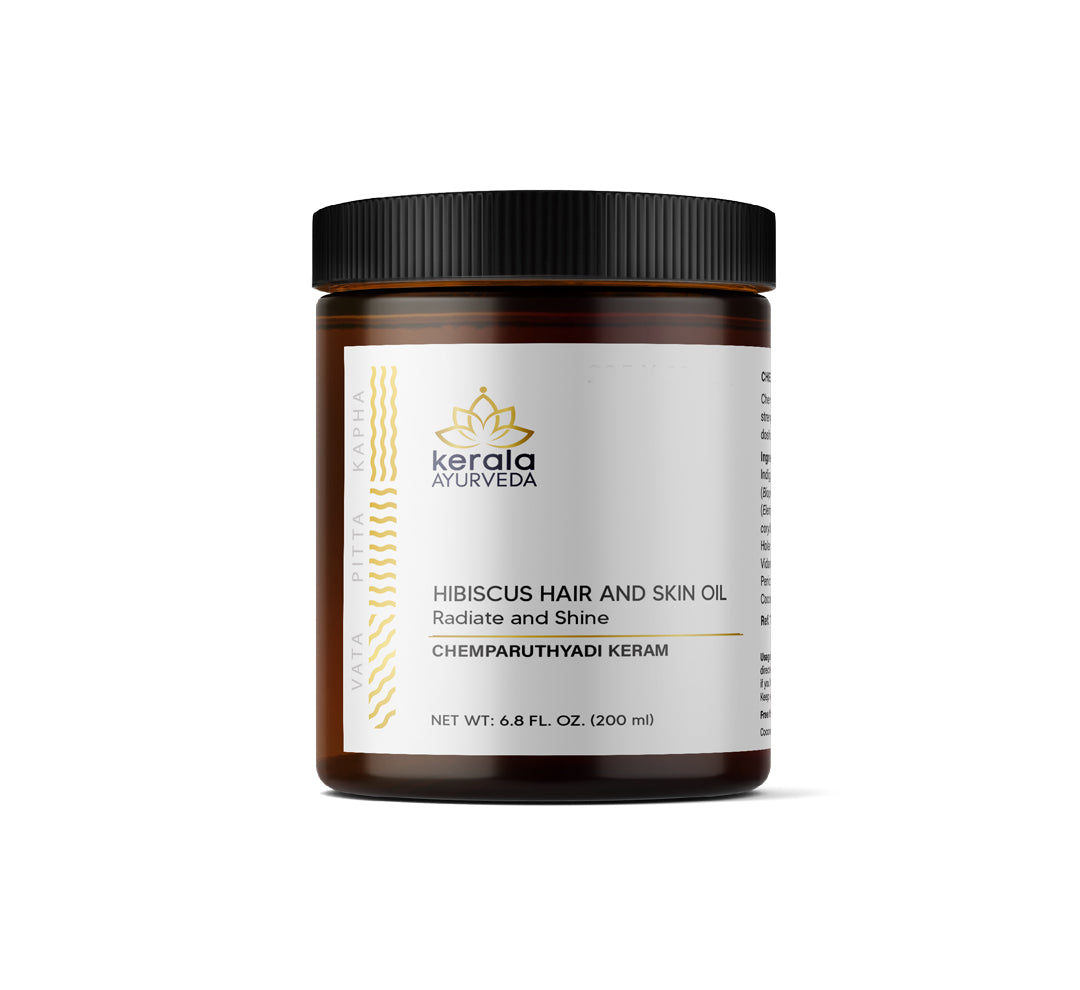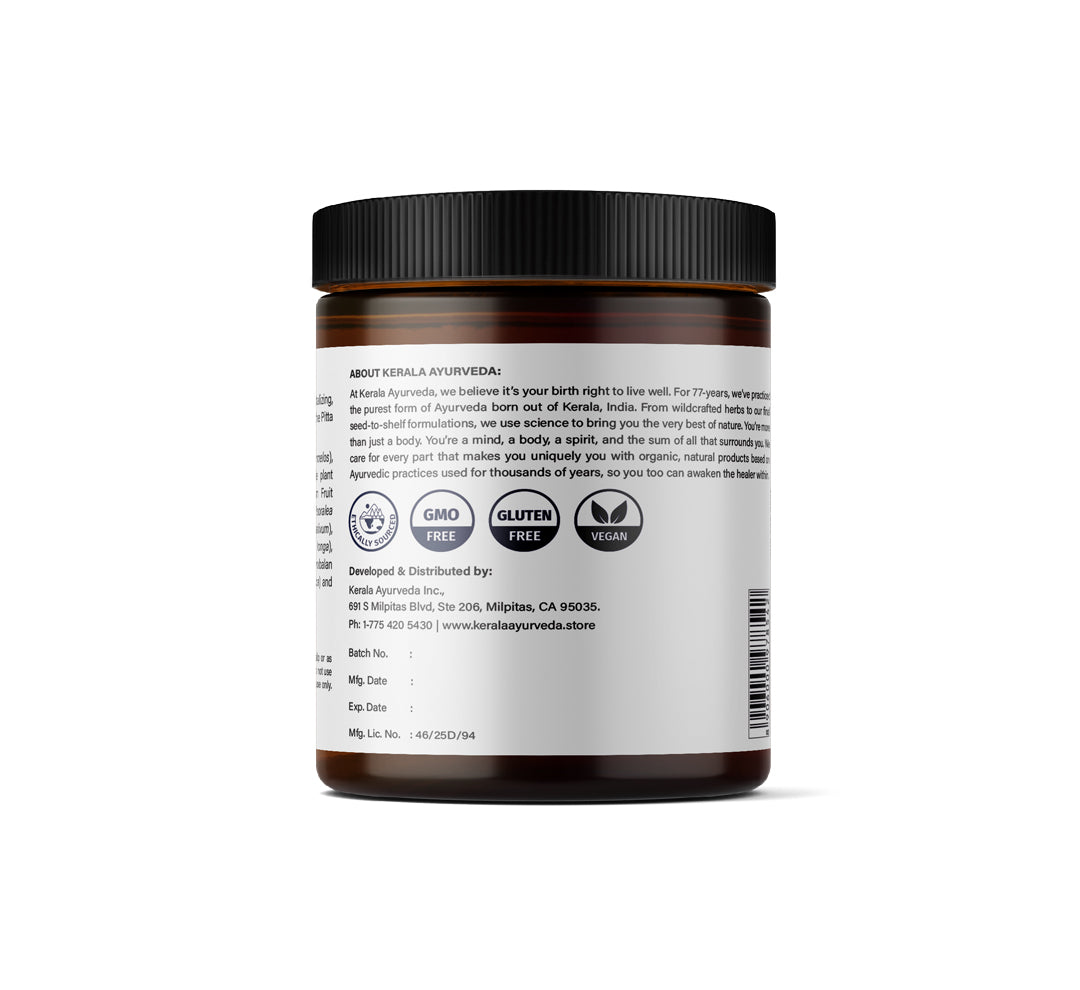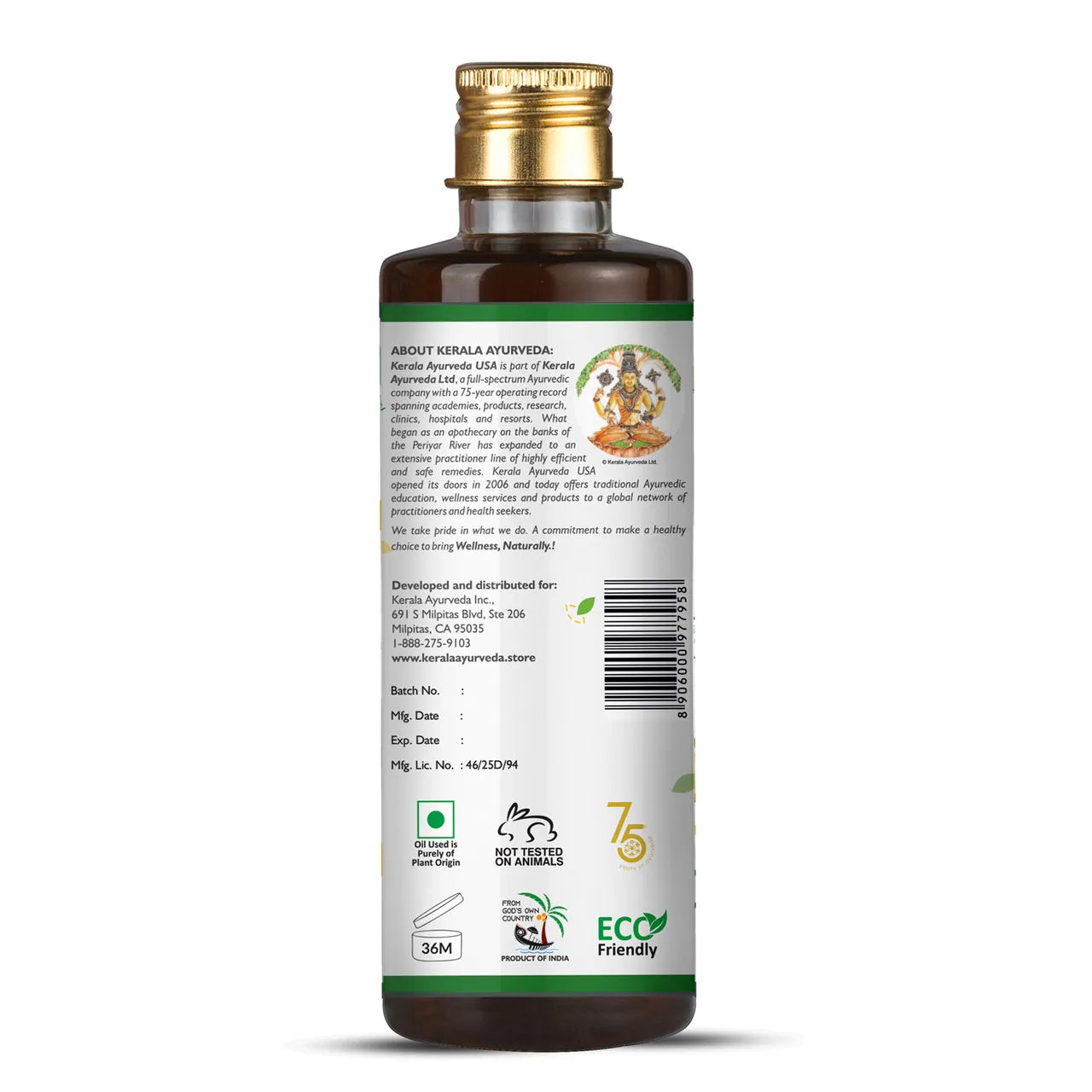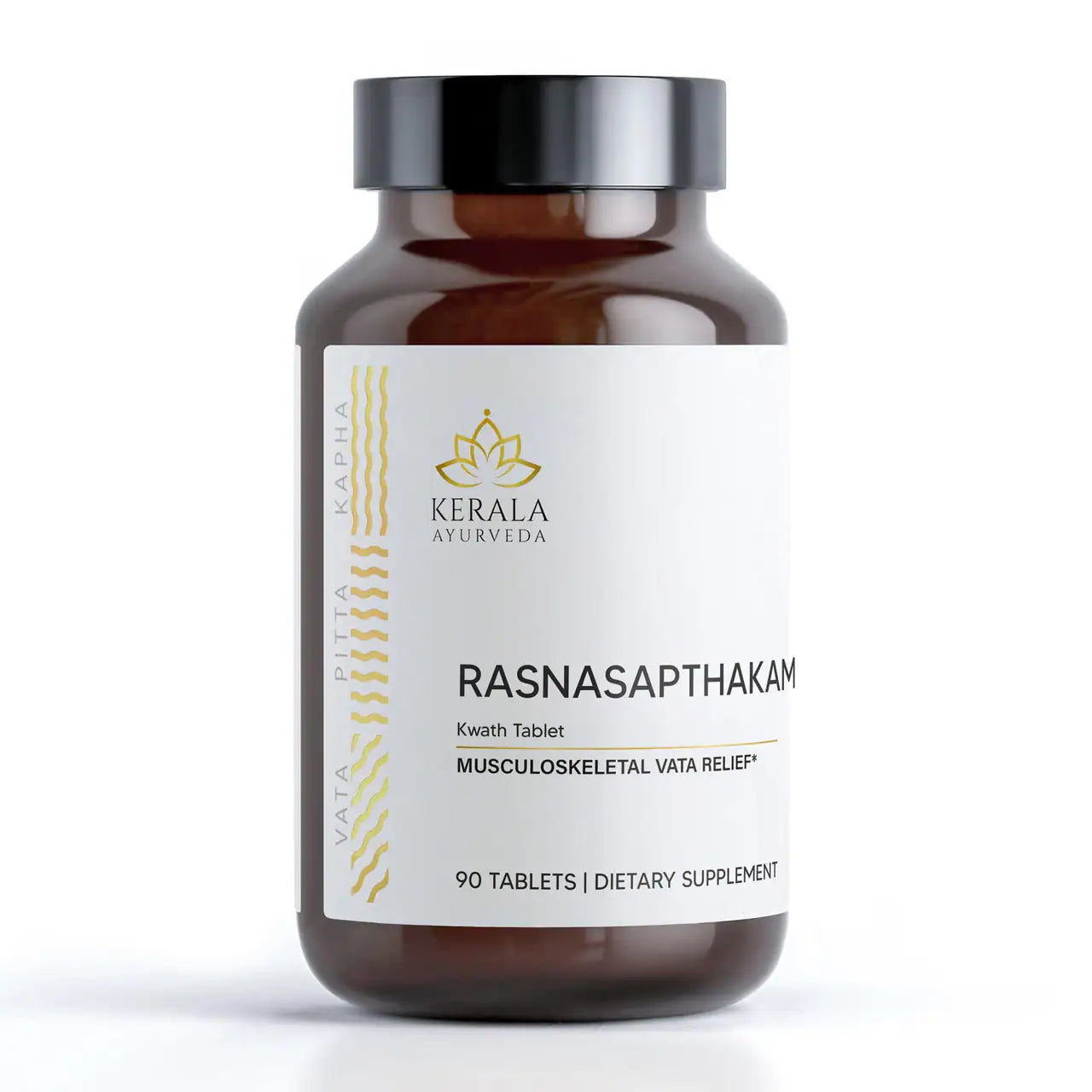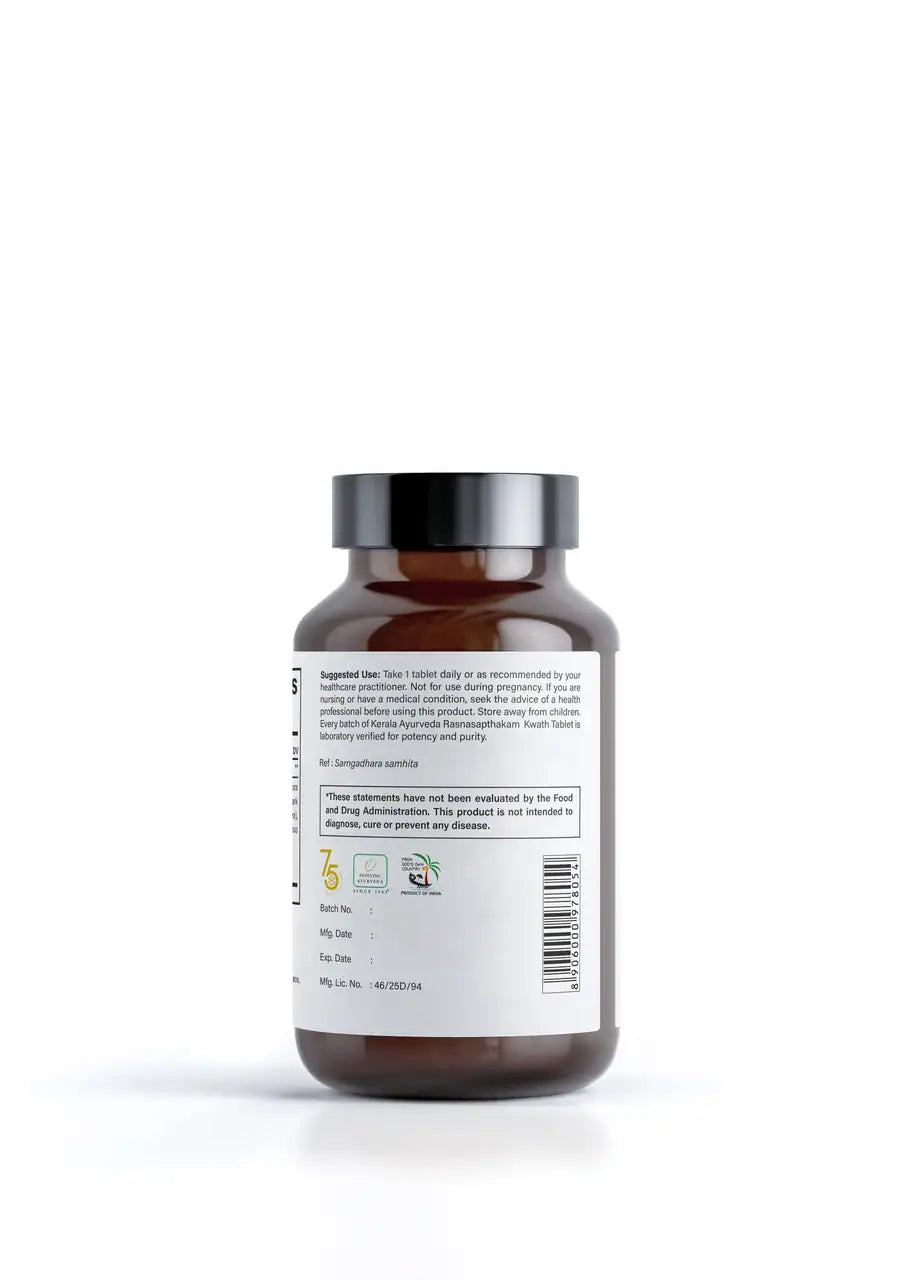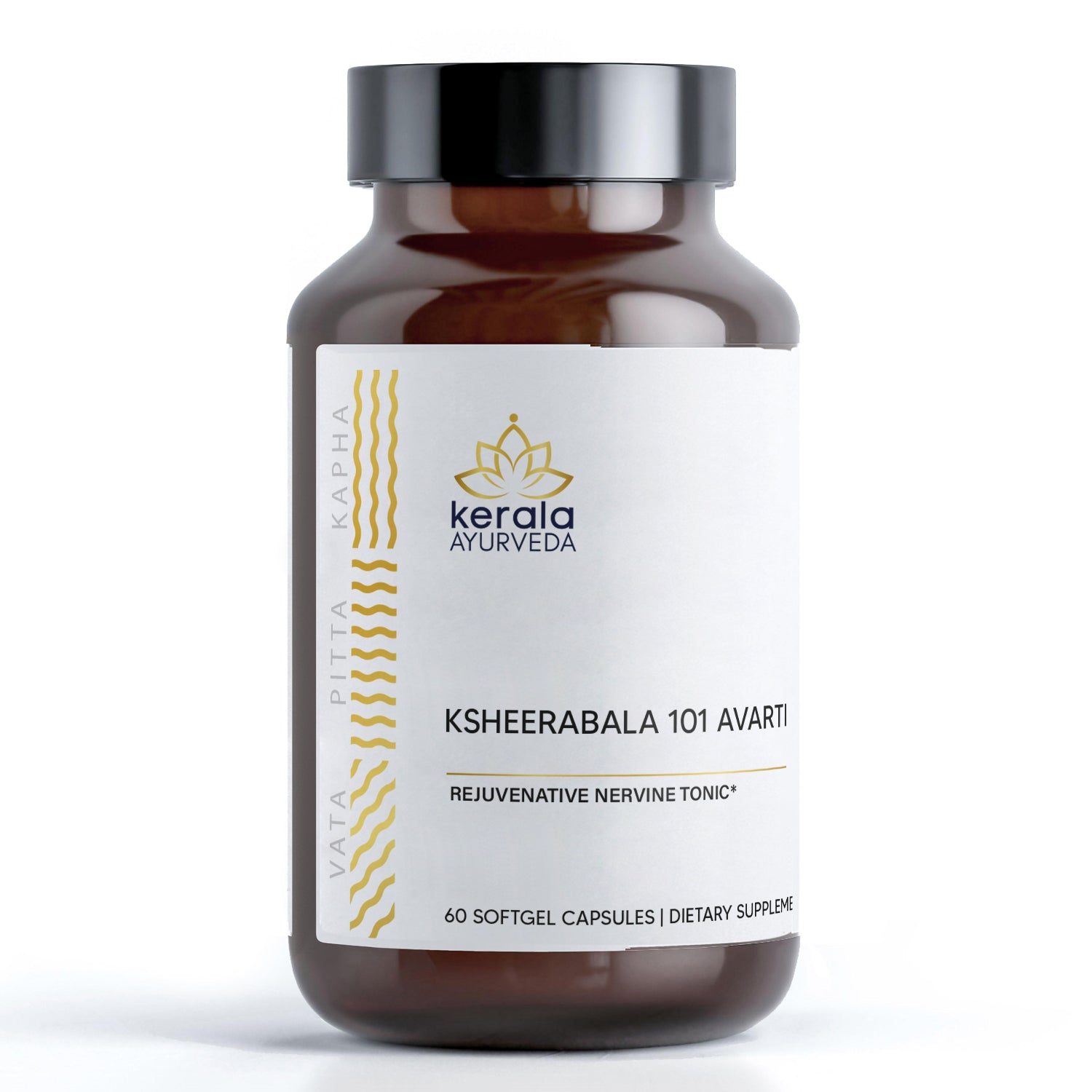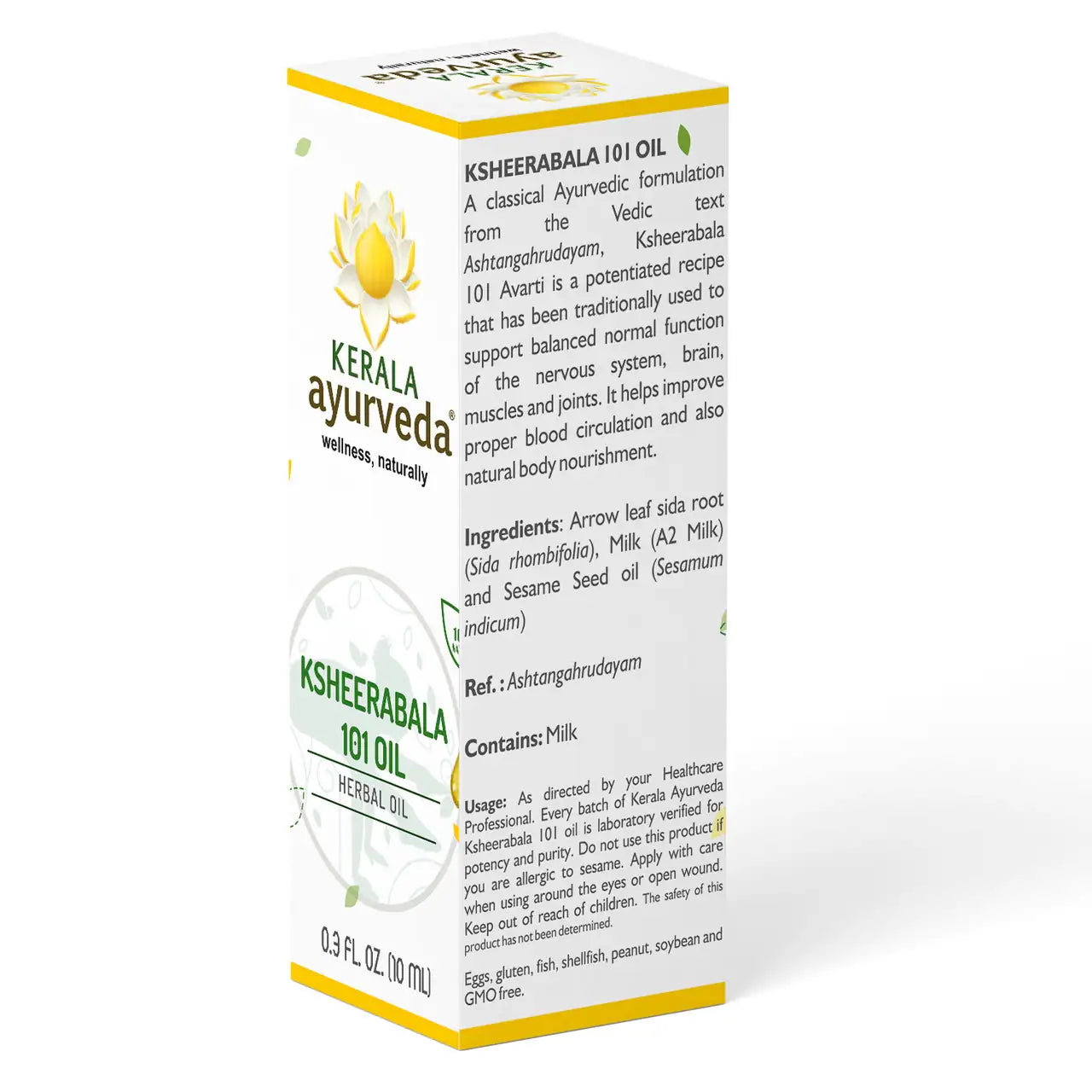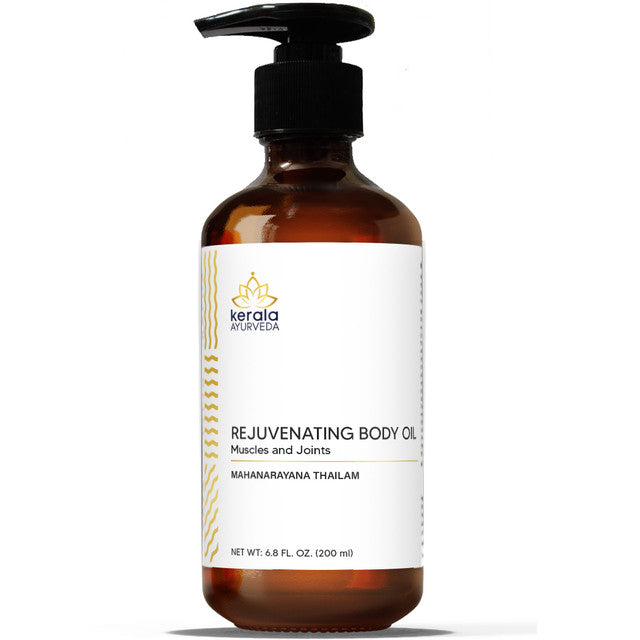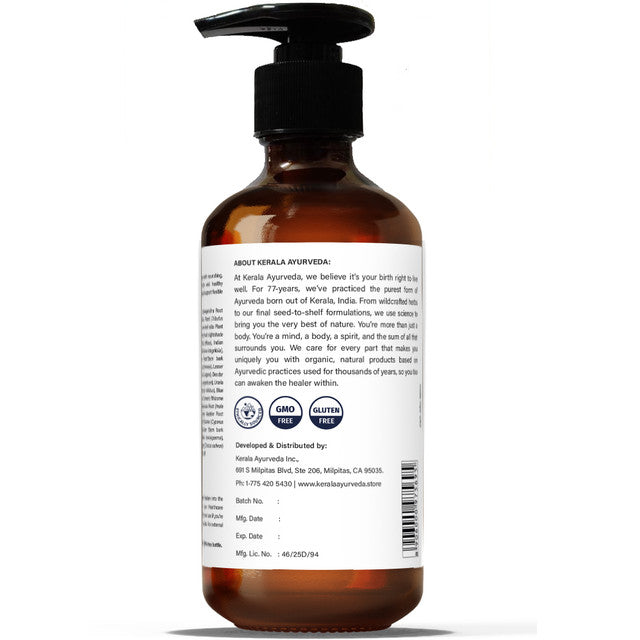Highlights
The timing of Ayurvedic herb consumption, known as "Aushadha Sevana Kala" has been refined in Ayurvedic practice for thousands of years. According to Ayurvedic texts, when Ayurvedic herbs are taken can be just as important as which herbs are used in a therapeutic protocol.

The Ayurvedic Perspective on Timing
- Empty Stomach (Niranna): Taking herbs on an empty stomach allows for maximum absorption without interference from food. This timing is particularly effective for conditions requiring cleansing or for herbs with subtle actions.
- Before Meals (Pragbhakta): Herbs taken 30-60 minutes before eating can help stimulate digestion and prepare the body for nutrient absorption. This timing is excellent for digestive herbs like ginger or bitter herbs that stimulate digestive enzymes.
- With Food (Madhyabhakta): Some herbs work best when taken alongside food, particularly those that might be irritating to an empty stomach. This timing helps herbs that need to be introduced gradually to the system.
- After Meals (Adhobhakta): Certain herbs are most beneficial when consumed after eating, especially those supporting healthy digestion or addressing conditions aggravated by empty stomachs.
- Between Meals (Antarabhakta): Taking herbs between meals can be useful for maintaining steady herbal action throughout the day without the interference of food.
- With Every Morsel (Grāsamantara): This method involves taking small amounts of herbs with each bite of food, creating a sustained release effect.
- Before and After Meals (Muhurmuhu): Some conditions benefit from herbs taken both before and after eating, creating a therapeutic envelope around mealtime.
- With Liquid Vehicles (Sabhakta): Herbs mixed with appropriate liquids like milk, honey, or specific decoctions can enhance the efficacy for certain conditions.
- At Bedtime (Samudga): Nighttime administration allows herbs to work during the body's natural rejuvenation period, particularly useful for herbs supporting sleep, immunity, or deep tissue healing.
-
According to Age (jirna): Some herbs are best taken when the previous meal has been fully digested, allowing for optimal absorption.
Ayurveda’s ancient wisdom reminds us that Ayurvedic herbs are not only about what we take, but when we take it. The timing can significantly influence how herbs interact with physiology and how effectively they address specific health concerns.

The Power of Pragbhakta: Why Taking Ayurvedic Herbs Before Meals Matters
According to Ayurveda, Pragbhakta Aushadha Sevana Kala (taking herbs before meals) is not just a general recommendation but a strategic therapeutic approach with specific benefits and applications.
Sanskrit meaning translated:
- Pragbhakta: Before food or meals
- Aushadha: Therapeutic herbs
- Sevana: Taking or administering
-
Kala: Time
This timing is particularly connected to balancing Apana Vata, one of the five subtypes of Vata dosha in Ayurveda. Apana Vata governs all downward moving energies in the body, including elimination (bowel movements, urination), menstruation, and childbirth. When Apana Vata becomes imbalanced, it can manifest as issues like constipation, urinary difficulties, menstrual irregularities, or lower back pain.
Taking Ayurvedic herbs before meals offers several distinct advantages, according to the Ayurvedic texts:
- Direct Influence on Lower Body: When herbs are taken before food, they can reach the lower digestive tract and pelvic area more quickly, directly targeting the seat of Apana Vata before digestion fully engages.
- Enhanced Lekhana (Reducing) Action: For conditions requiring "scraping" or reducing excess tissues, particularly fat, taking herbs before meals allows them to work with maximum efficiency when the body's channels are clear.
- Strengthening Effects: Surprisingly, even for thin or depleted individuals, taking certain strengthening herbs before meals can be beneficial, specifically for enhancing the strength and function of the lower body.
- Preservation of Digestive Fire: By administering herbs before food, they are absorbed without interfering with the Agni (digestive fire) needed to process the upcoming meal.
- Optimal Absorption: Similar to modern recommendations for certain supplements, taking herbs on an empty stomach allows for potentially quicker and more efficient absorption without competition from food.
-
Appetite Preservation: Unlike some herbs taken with meals that might subtly suppress appetite, the before-meal timing avoids this effect, ensuring comfortable food consumption afterward.
Taking herbs before meals is especially beneficial for conditions involving Apana Vata imbalances, obesity or conditions requiring a reducing action, weakness in the lower body, or when direct action on the lower abdomen is desired.

Modern Research on Ayurvedic Herbal Timing
Research published in the Journal of Ayurveda and Integrative Medical Sciences (JAIMS) examines the scientific rationale behind Aushadha Sevana Kala, offering fascinating insights into how these ancient practices align with contemporary understanding of chronopharmacology.
The Science of Chronopharmacology
Chronopharmacology—the study of how the timing of medication affects its efficacy—reveals that our bodies process substances differently throughout the day based on our circadian rhythms. This modern scientific field echoes what Ayurvedic practitioners have understood for centuries: timing matters significantly when it comes to healing.
JAIMS research demonstrates the ten classical timings prescribed in Ayurveda correspond to physiological states that can enhance or diminish an herb's effectiveness:
- Morning administration (typically before breakfast) aligns with the body's natural detoxification cycles. During these early hours, the liver is most active in processing substances, making this an ideal time for detoxifying herbs and bitter tonics.
- Midday herbs align with peak digestive power (Agni) when the body's metabolic processes are most robust. Herbs that are harder to break down and absorb are most effective when taken around noon.
-
Evening administration works well for herbs with calming properties or those supporting rejuvenation, as the body naturally shifts toward repair mode as daylight wanes.

Condition-Specific Timing
The JAIMS research also validates Ayurveda's approach to condition-specific timing:
- Digestive disorders respond best to herbs taken before meals (Pragbhakta) when they can prepare the digestive system for incoming food.
- Respiratory conditions often benefit from herbs taken after meals (Adhobhakta) when the herbs can act without being diluted by digestive processes.
- Neurological applications may be most effective when taken at bedtime (Samudga) when the nervous system is naturally shifting toward parasympathetic dominance.
-
Metabolic disorders often respond well to herbs taken with meals (Madhyabhakta) when they can directly influence metabolic processes activated by food consumption.
The Special Case of Abhakta: Fasting for Enhanced Ayurvedic Herbal Efficacy
Ayurveda describes another important approach to timing called "Abhakta," which refers to the practice of taking herbs while fasting. This method significantly enhances the potency and absorption of Ayurvedic herbal remedies.
When herbs are consumed without food, several benefits occur:
- Enhanced Bioavailability: Without competition from food particles, herbal compounds are absorbed more efficiently through the intestinal walls.
- Increased Potency: Research suggests that herbs taken on an empty stomach may require smaller doses to achieve therapeutic effects, making this approach both economical and effective.
- Direct Action: Certain herbs can directly target affected tissues without being altered by digestive processes when taken in a fasted state.
-
Deeper Cleansing: Detoxifying herbs work more thoroughly when the digestive system isn't simultaneously processing food.
The clinical significance of Abhakta timing cannot be overstated. For people with chronic conditions requiring deep tissue penetration of herbs, this approach can be transformative.
However, it's important to note that not all herbs are suitable for fasting — some powerful formulations may cause irritation or discomfort when taken on a completely empty stomach.

Practical Applications for Taking Ayurvedic Herbs
Based on the collective wisdom from several Ayurvedic sources, here are some practical examples for herb timing:
Examples of Therapeutic Protocols:
- Adaptogenic herbs: Indukantham Kwath is best taken in the morning on an empty stomach or between meals.
- Digestive herbs: Gandharvahasthadi Kwath optimal effectiveness is 15-30 minutes before meals.
- Immune-supporting herbs: Rasayana is usually most effective between meals.
- Sleep-supporting herbs: Ashwagandha is usually optimal 30-60 minutes before bedtime.
- Fat-reducing herbs: Garcinia has enhanced efficacy when taken before meals.
- Liver-supporting herbs: Punarnavasavam is optimal timing first thing in the morning.
- Nervous system support: Brahmi Pearls is usually most effective between meals or before bed.
-
Urinary and reproductive tonics: Gokshuradi Gugulu the best timing is considered before-meals for direct action on lower body systems.
Important Considerations for Your Ayurvedic Herbal Regimen
Both Charaka Samhita and JAIMS research emphasize that while understanding these Ayurvedic timing principles is empowering, Ayurveda is fundamentally a highly individualized system. Qualified practitioners assess unique constitution (Prakriti), current imbalances (Vikriti), and the specific nature of the herbs being considered to determine the most appropriate timing.
Different Ayurvedic herbs may require different timing strategies based on:
- Your dominant dosha (Vata, Pitta, or Kapha)
- The specific condition being addressed
- The properties of the herbs themselves
- Your digestive capacity and current state of health

Optimizing When to Take Ayurvedic Herbs for Maximum Benefits
Research from both the Ayurvedic texts and modern scientific studies confirm that when Ayurvedic herbs are taken can dramatically influence their effectiveness. By honoring these time-tested principles, we can maximize the healing potential of herbs.
Rather than viewing herbal consumption as merely a daily task, consider it a therapeutic ritual that aligns with the body's natural rhythms. Experimenting with traditional timing approaches may reveal that simple adjustments to when herbs are taken can significantly enhance their benefits.
As Ayurvedic wisdom teaches, true holistic healing honors not just what is consumed, but when it is consumed. The synergy between ancient wisdom and modern chronopharmacology offers a balanced approach to Ayurvedic herbal timing that benefits practitioners and patients alike.

Your Personalized Path to Wellness
Ayurveda is not a one-size-fits-all approach but a deeply personalized journey of understanding your unique constitution. By recognizing your dominant dosha, nurturing your digestive strength and balance, and preventing toxic accumulation you will become healthier.
If you're dealing with chronic symptoms of imbalance and would like personalized guidance, consider scheduling an Ayurvedic Wellness Consultation for a tailored approach designed just for you. We would love to hear your story and help you find the right Ayurvedic solution.
References:
CharakaSamhitaOnline.com
JAIMS Journal of Ayurveda and Integrated Medical Science







